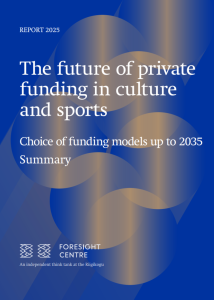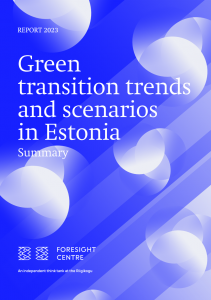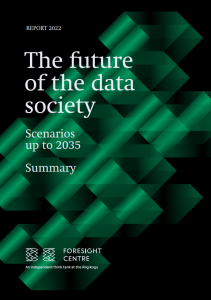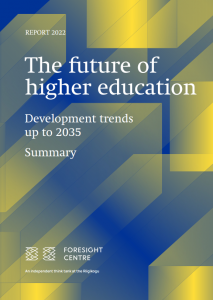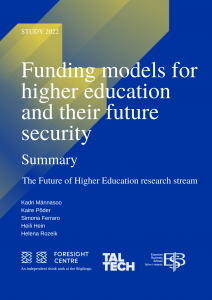Culture and sports carry national identity and maintain social memory. At the same time, they create a strong sense of belonging, boost health and support social cohesion and personal well-being. Culture and sports create economic value through job creation, tourism and exports. We cannot focus only on short-term costs and revenues in funding these sectors; it is important to take a look at their long-term impact to help build a healthier, more cohesive and more economically viable society.
Reports
The deterioration of the environment and climate warming pose significant risks to the well-being of people in Estonia. In alignment with the European Union’s green transition, Estonia has committed to achieving climate neutrality by 2050. To achieve these goals, mere improvements in existing energy systems may not suffice and fundamental changes are required in how energy is supplied to the population, and in how people move around, eat and live.
The spread of digital technology into every area of life has caused the datafication of the economy and society, as the actions of people, companies, machines and even nature leave a lasting data footprint.
Higher education has a value for individuals, the economy, and the whole of society. People are motivated to invest in higher education because they expect greater welfare in the future through higher income and the better quality of life that that allows, and also intellectual enrichment and a more varied life.
The current report focuses on the future of higher education in Estonia. The importance of human capital in the knowledge economy has promoted the debates about the role, size, and financing of higher education to the core of academic and political debates.

 An independent think tank at the Riigikogu
An independent think tank at the Riigikogu 